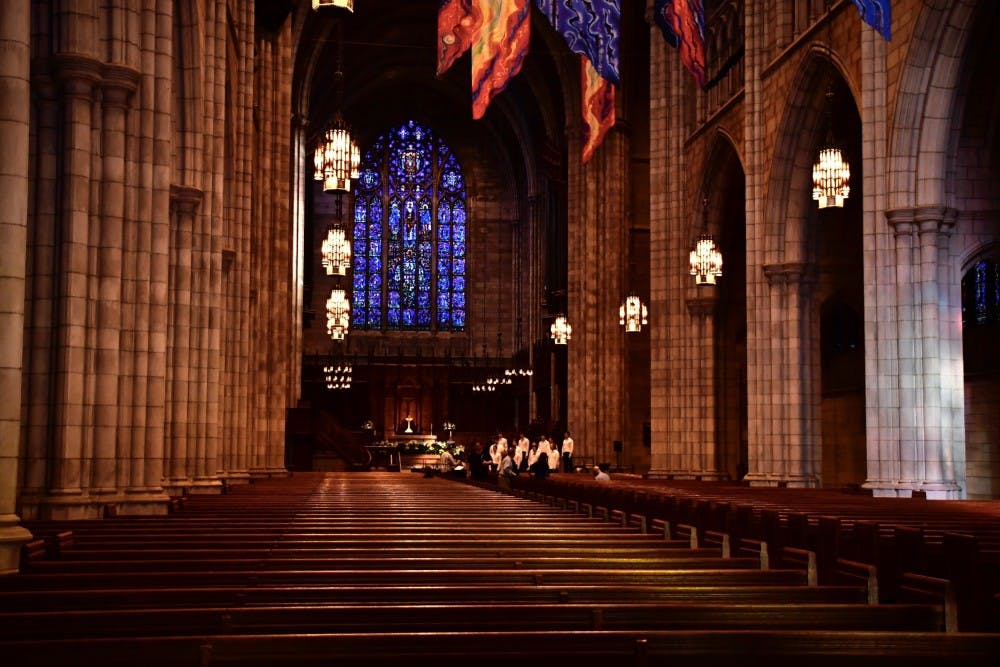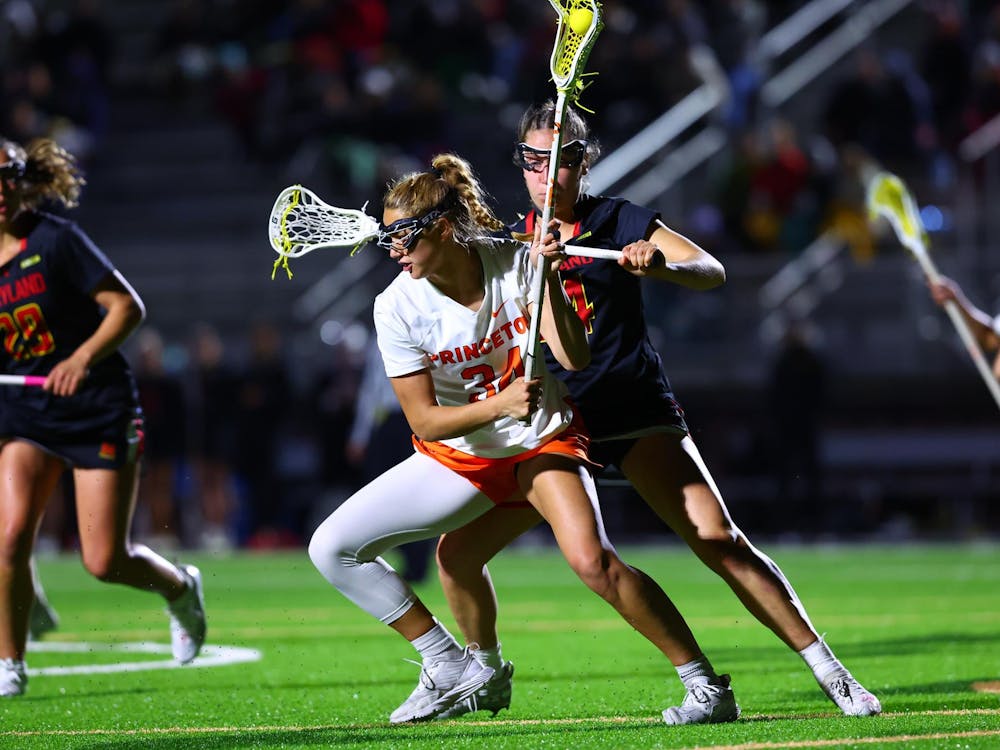“… They shall grow not old, as we that are left grow old;
Age shall not weary them, nor the years condemn.
At the going down of the sun and in the morning
We will remember them.”
As the last words of “For the Fallen,” by Laurence Binyon, reverberated across cold stone walls and faded, I couldn’t help but feel awed yet mystified. Standing in the empty, cavernous University Chapel, my friend had decided to hold his own impromptu Remembrance Day service, with myself as the sole lucky attendant. It was his first Remembrance Day — known here as Veteran’s Day — away from his native England, and despite all of the tradition and commemoration, it did not feel the same to him. The American way of celebrating it was surely different, with no lapel poppies in sight, and the tune of “I Vow to Thee, My Country” nowhere to be heard. While these cultural caveats were part of our motivation, I believe there was a deeper, underlying reason for this perceived difference. While our American peers celebrated the honor and merit of veterans, they often failed to hear the voices of the fallen.
“… The opening of this new academic year … presents to our minds a striking contrast: the peaceful setting of this assembly against the dark background of the terrible European war.”
On Sept. 24, 1914, in that same spot where we had just finished our two minutes of silence, different students stood in a different chapel hearing the address of President John G. Hibben to the incoming first-year class. The conflict now known as World War I had just broken out a month before, following the assassination of Archduke Franz Ferdinand. Students returned to a campus that, unbeknownst to them, would be changed forever by this seemingly distant struggle of squabbling European states. At that moment, Hibben’s words reverberated among the walls and pillars of old Marquand Chapel, and with them, the thoughts, anxieties and expectations of many that would not live to see the war’s end. Despite the chapel’s destruction by fire in 1920, these echoes still danced past pointed arches into ornate walls, harmonizing with the solemn words recited by my friend as perfect counterpoint between the living and the dead.
And that’s what this was. It was a rare moment where I was clearly able to hear the ever present voices of our campus history. Among the numerous events that celebrated the military heroes of today — church services, barbecues, and even discount sales at stores — we felt that the actions of the living were overshadowing the sacrifices of the fallen. I do not believe it is wrong to honor those who work for our defense out of duty and love, but I do believe there is a special power and value to the contemplation of those who long ago gave their lives so we could enjoy our imperfect but more peaceful world. I don’t blame the public for forgetting the importance of these sacrifices, as the century that separates us from those people seems to impose an immense and unrelatable distance. Yet this perceived distance is no more than fiction, as voices spoken a hundred years ago are still audible among these hallowed halls, especially in moments like that little late-night service at the chapel.
As we ventured out of the chapel into the chilly November night, we decided to make our way to Campus Club. My friend had told me of a commemorative plaque honoring those members of the defunct eating club that lost their lives in WWI. Thinking it could be useful for this article, I followed his lead and went along. While walking through the dimly lit pathways, we noticed a sight that I’m sure many students are familiar with: star-shaped plaques on the exterior of many of the older campus buildings, each honoring a Princetonian fallen in battle. As I saw them, I thought of the moment the names engraved in these tokens were not affixed to a piece of metal, but to real, living people who used to roam around campus as we did. These students used to rush down the stairwell after finishing their morning lecture in McCosh 10. These students used to venture into the library, struggling to find sources for papers due the day after. These students sat on the steps by the sundial as they enjoyed the pleasant, mild weather while reading. They contemplated in awe the incredible history of Nassau Hall. They ate at the dining hall, telling stories of their days and worrying about which club they would bicker. They lived in our dorms, shared our anxieties, hopes, dreams. Yet they did something very few of us will ever do — they left home to never return but as etchings in hundreds of stars that now live among us.
These and many other relics preserve the memories of those who have fallen. The next time you see a star, a plaque at an eating club or, if you’re lucky, one in your own dorm, try to hear the voice of that soldier, and thank him in return. This act of remembrance not only honors those who died, but also reminds us of the costly price of peace, and how much there’s still to do to achieve it. Please remember them, maybe even wear a poppy, as our hearts are worthier vessels of their memory than a thousand rusting scraps.
“And there's another country, I've heard of long ago,
Most dear to them that love her, most great to them that know;

We may not count her armies, we may not see her King;
Her fortress is a faithful heart, her pride is suffering;
And soul by soul and silently her shining bounds increase,
And her ways are ways of gentleness, and all her paths are peace.”
–Urbs Dei, by Sir Cecil Spring Rice.
Juan José López Haddad is a sophomore from Caracas, Venezuela. He can be reached at jhaddad@princeton.edu.









